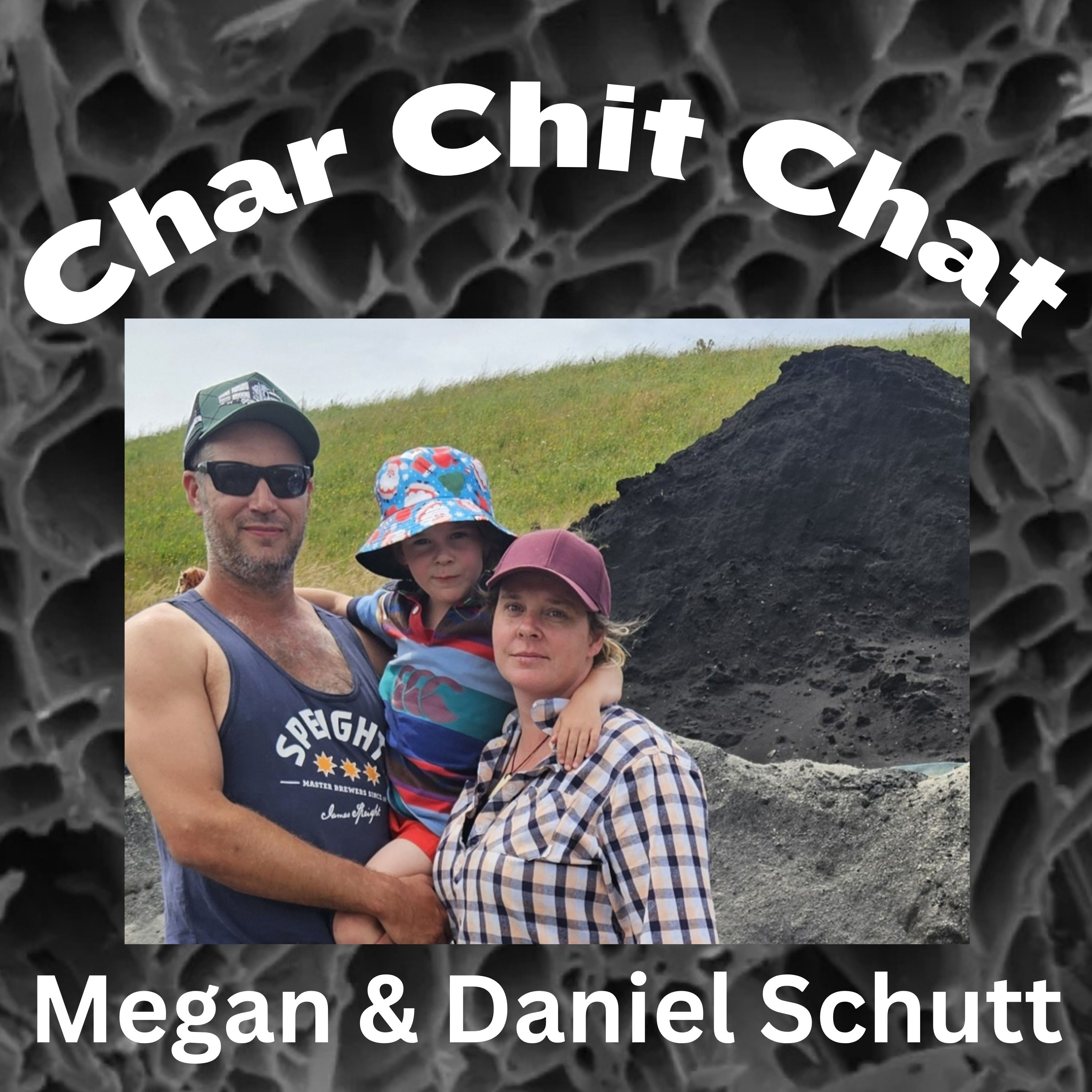Char Chit Chat

Char Chit Chat
Podcast Description
Char Chit Chat is created by Dylan Graves and explores char in New Zealand and beyond. The podcast aims to interview a range of people involved in biochar, activated charcoal, carbon anodes, and so on. The main subject will tend to be biochar as that is most accessible and scales from individuals making char in their woodstove over the winter to large industrial pyrolysis units outputting several tonnes per day. Biochar is also a great soil conditioner and improver and so is relevant to gardeners and famers alike.
An introduction and overview of Biochar: https://www.sces.org.nz/biochar
Podcast Insights
Content Themes
The podcast primarily focuses on biochar and its broad uses, ranging from home production methods to large-scale industrial applications. Episodes such as the one featuring Dennis Enright delve into sustainable agricultural practices and the significant role biochar can play in enhancing soil quality. Other episodes, like the one with Phil Stevens, explore innovative use cases for biochar, including its potential in environmental decontamination and discussions on making biochar more widely adopted.

Char Chit Chat is created by Dylan Graves and explores char in New Zealand and beyond. The podcast aims to interview a range of people involved in biochar, activated charcoal, carbon anodes, and so on. The main subject will tend to be biochar as that is most accessible and scales from individuals making char in their woodstove over the winter to large industrial pyrolysis units outputting several tonnes per day. Biochar is also a great soil conditioner and improver and so is relevant to gardeners and famers alike.
An introduction and overview of Biochar: https://www.sces.org.nz/biochar
Great to get dairy farmers on the Char Chit Chat who actively use and promote biochar in many aspects of their farming operation. We delve into their farming journey and reveal many very sensible aspects such as once a day milking, cow barns with bunkers to give the cows comfort and to harness their nutrients, as well as their use of biochar as a feed supplement and carbon sponge.
In addition to farming, Megan shares her experience and knowledge as a farm coach and Daniel has a transport company and is distributing char based products sourced locally as well as other products that farmers require.
This interview is an excellent follow up and practical example happening in New Zealand to the recent release of the 10 Benefits of Biochar for Dairy Farms by BNNZ.

Disclaimer
This podcast’s information is provided for general reference and was obtained from publicly accessible sources. The Podcast Collaborative neither produces nor verifies the content, accuracy, or suitability of this podcast. Views and opinions belong solely to the podcast creators and guests.
For a complete disclaimer, please see our Full Disclaimer on the archive page. The Podcast Collaborative bears no responsibility for the podcast’s themes, language, or overall content. Listener discretion is advised. Read our Terms of Use and Privacy Policy for more details.